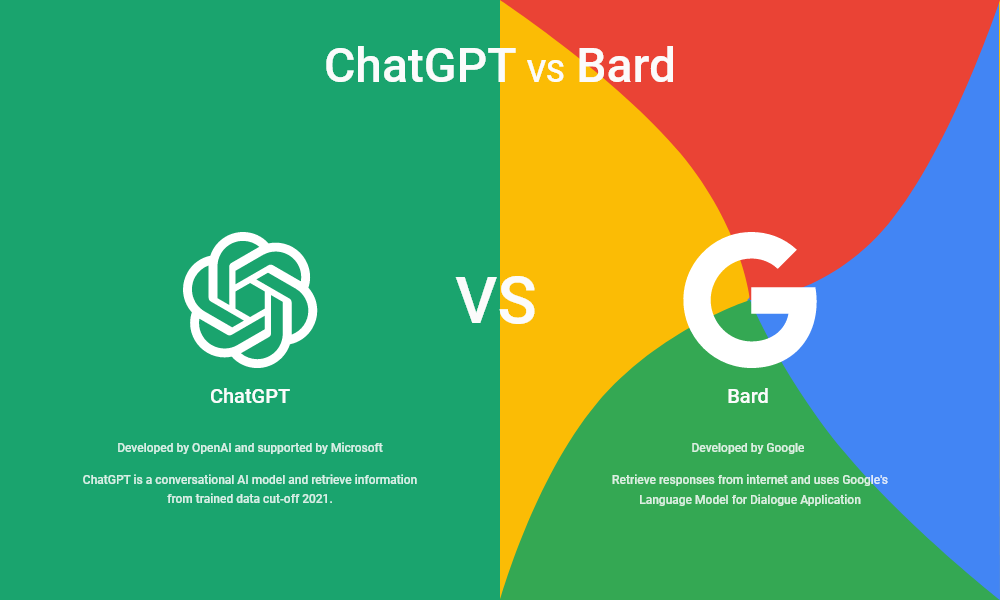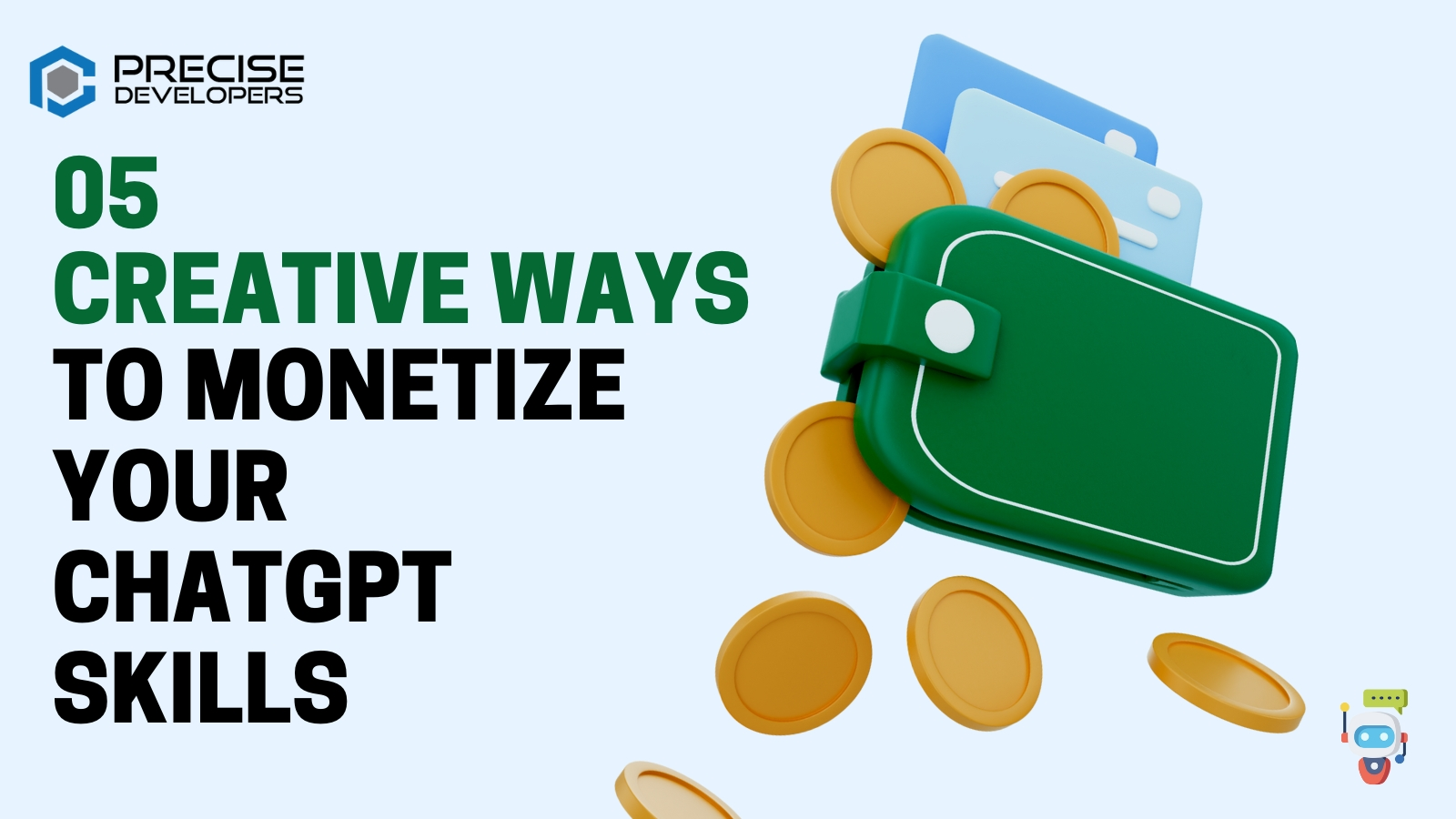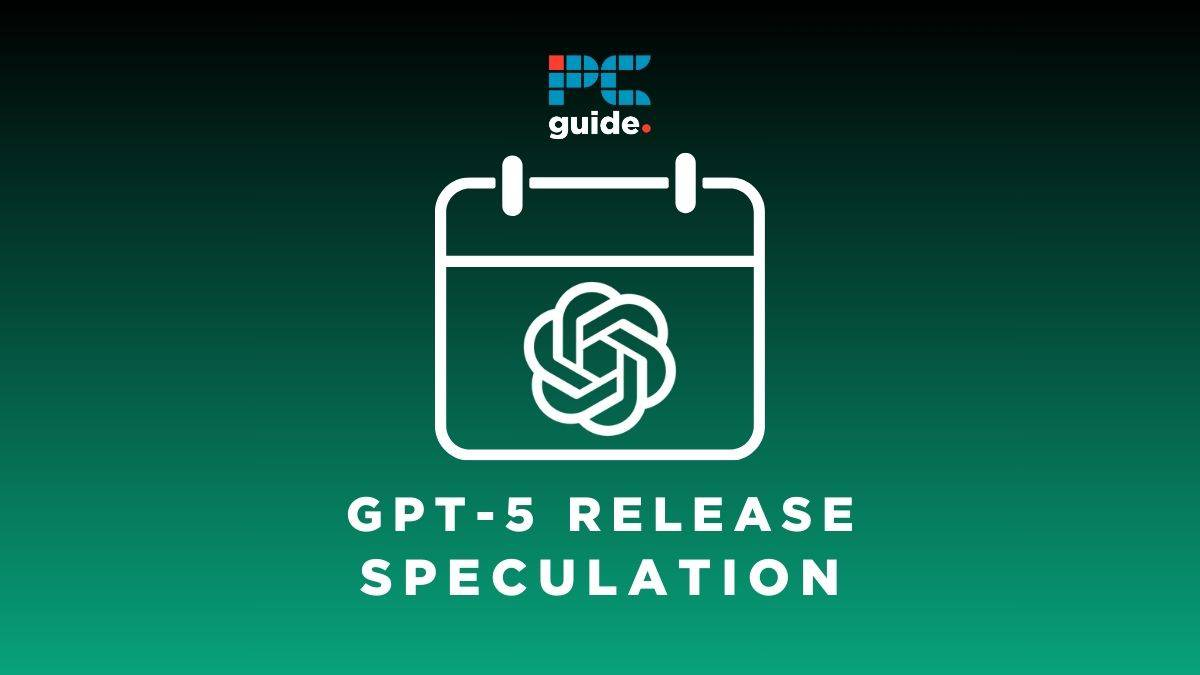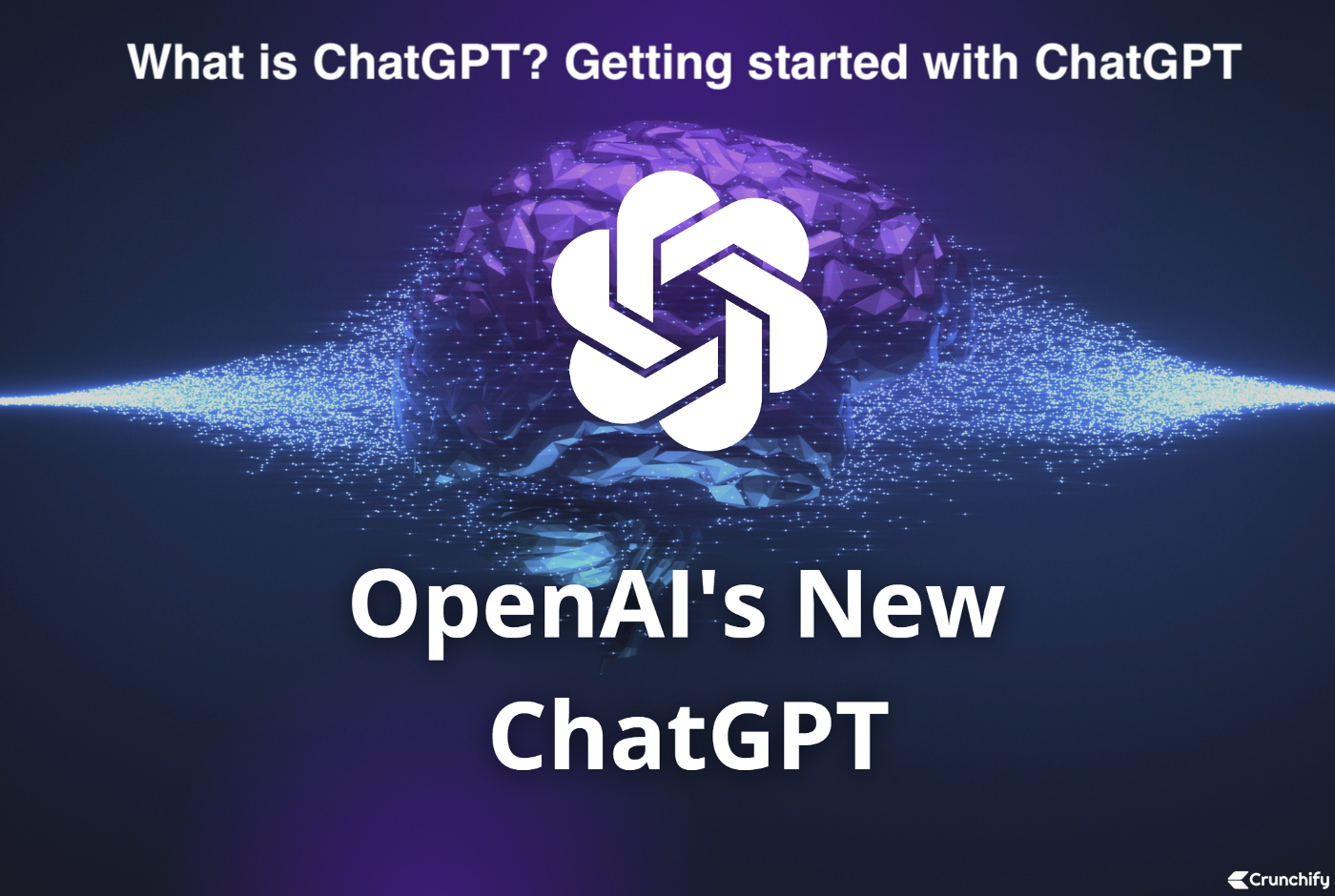When it comes to the debate of ChatGPT vs Google, understanding their differences is essential. Both serve as powerful tools for information retrieval, yet they function in distinctly unique ways. While Google excels in its search capabilities, offering vast data from the web, ChatGPT innovates through AI-driven conversational responses. This raises intriguing questions about the viability of AI against traditional search engines in providing accurate and relevant information. In this comparison, we’ll explore the strengths, limitations, and potential future of generative AI tools like ChatGPT versus established giants like Google.
In the ongoing discussion of AI technologies and search platforms, it is vital to differentiate between the capabilities of interactive conversational agents and conventional search engines. ChatGPT offers a dynamic and engaging experience, responding to inquiries in a chat format, while Google provides comprehensive search results based on an indexed web. This juxtaposition leads us to examine not only the advancements in AI applications but also the effectiveness of search algorithms. By analyzing ChatGPT’s strengths alongside Google’s extensive search capabilities, we will gain insights into how these tools shape our information-seeking behaviors. As new alternatives to Google emerge, understanding the nuances of these technologies becomes increasingly important for users seeking reliable information.
Understanding the Mechanisms: ChatGPT vs Google
To comprehend the differences between ChatGPT and Google, we should delve into their underlying mechanics. Google operates primarily as a search engine that indexes web pages and displays them based on relevance to the search query. This system relies on complex algorithms, which analyze countless web pages, returning results ranked by an intricate set of criteria including keyword optimization, page authority, and user engagement metrics. Meanwhile, ChatGPT, powered by AI technology, takes a different approach. It’s trained on a dataset that, while extensive, is fixed up until September 2021. Rather than retrieving information from an ever-changing database, ChatGPT generates responses based on the patterns it learned during training.
The essence of their operation highlights a key difference: Google’s search capabilities allow for real-time updates and accuracy, essential for up-to-date information. In contrast, ChatGPT’s utility lies in its conversational style, which facilitates an interactive dialogue. Users can ask follow-up questions and refine their inquiries seamlessly. This chat-based interaction provides a personalized touch that Google’s list of links lacks, despite being faster for simple queries. Thus, while Google excels in retrieving a wide spectrum of live data, ChatGPT shines in user interaction and empathetic response generation.
Analyzing ChatGPT Limitations and Errors
Despite its innovative framework, ChatGPT comes with notable limitations, chiefly the phenomenon known as ‘hallucinations’. This occurs when the AI fabricates information in circumstances where it lacks data or confidence regarding a question. While OpenAI has made strides to mitigate this issue, such as with the transition from GPT-3.5 to GPT-4, there’s still a risk of inaccurate outputs. Users must stay vigilant and cross-check what the AI asserts before acting upon it. For instance, when asking for statistical information or historical facts, it’s crucial to verify these details through credible sources because the ramifications of acting on fabricated responses can be significant.
Moreover, the AI is confined to the perspectives of its training data, which may reflect inherent biases or outdated viewpoints. This becomes particularly evident in academic or historical inquiries where the answers can be overly simplistic or fail to consider alternative narratives. Consequently, while using ChatGPT might seem efficient, the necessity for rigorous verification of its outputs reduces its overall utility in serious research contexts. As a rule of thumb, anyone utilizing ChatGPT should approach its responses with a degree of skepticism and always conduct further investigation to obtain a comprehensive understanding.
The Role of Google in Search Capabilities
Google’s role in web search is unparalleled, stemming from its sophisticated algorithms that organize and prioritize information. When a user inputs a query, Google’s system sifts through billions of indexed websites to present the most relevant results, utilizing a variety of ranking factors that include keyword consistency and website authority. This broad approach allows users to access a multitude of perspectives and data points, which is particularly advantageous for research purposes. Whether looking for current news, specific studies, or factual details, Google’s extensive database caters to a diverse range of informational needs.
However, the reliance on Google search can lead to an overwhelming number of choices as users are bombarded with links of varying quality. It can also lead to frustration if the desired information isn’t found due to improper phrasing of the search query. This highlights a key challenge in the information retrieval process: how to formulate search queries to yield beneficial results. Hence, while Google offers remarkable search capabilities, the effectiveness of its use is greatly influenced by the user’s ability to navigate and refine their search strategies.
Evaluating AI vs Search Engines: A Comparative Analysis
Comparing AI models like ChatGPT with traditional search engines brings to light fundamental differences in how users interact with technology. One of the primary distinctions is the method of information retrieval: search engines provide extensive options from which users select, while AI models deliver a synthesized response directly. This can be particularly advantageous for straightforward questions where a concise answer suffices. Yet, this very convenience poses the risk of misinformation, as AI outputs can sometimes lack veracity, compelling users to validate the AI’s suggestions against trusted sources.
Interestingly, the evolution of AI is prompting a closer examination of these tools, particularly regarding future potential as alternatives to conventional search engines. AI shows promise in refining the user experience by providing personalized interactions, but there remains concern regarding the reliability of the information generated. As both technologies continue to develop, understanding their unique strengths—AI’s conversational capabilities versus search engines’ reliability—will be crucial for users making informed decisions about which tool to employ for their informational needs.
The Importance of Verification in Information Gathering
In an age where misinformation is rampant, the significance of validating information cannot be overstated, especially when using tools like ChatGPT. The AI’s tendency to fabricate information, termed hallucination, contributes to a critical need for users to cross-reference data before trusting its accuracy. This practice becomes even more crucial when dealing with complex topics or critical decisions, where inaccuracies could lead to far-reaching consequences. Users should establish a habit of questioning AI-generated responses and seek out corroborating sources to enhance the reliability of the information they obtain.
However, even traditional search engines like Google require verification, as they can direct users to outdated or biased sites. Hence, developing a comprehensive approach to researching—where both AI outputs and search engine results are verified—is vital. Cultivating these habits will ultimately empower users to better discern credible information, ensuring that they make decisions based on reliable data regardless of whether they are consulting an AI tool or a search engine.
Exploring Google Alternatives in AI Technology
With the rapid advancements in AI, several promising alternatives to Google are emerging, offering different angles on information retrieval and interaction. For instance, Bing now integrates AI capabilities to enhance search experiences, allowing users to engage with a virtual assistant-style interface reminiscent of ChatGPT. This combination of traditional search and AI promises more conversational and contextually aware responses, which could bridge some of the gaps currently found in both systems.
Moreover, other innovative platforms are sprouting as viable alternatives such as Google Bard, which aims to combine the best of both worlds—AI-assisted context and sourced information from the web. As these technologies evolve, they provide users with the potential to glean insights from AI-driven content while ensuring they remain grounded in verified data. The array of alternatives suggests a future where users can select tools that best fit their needs while navigating the complexities of modern information gathering.
Future Prospects of AI Integration in Search Engines
Looking ahead, the possibilities for AI integration into search engines are vast, suggesting a transformative future for how we access information. As search engines evolve, we might witness a merging of AI capabilities that enhance user experiences while ensuring data accuracy and reliability. This fusion could lead to a model where users engage with AI-driven interactions, receiving tailored information quickly while still benefiting from the rigorous sourcing protocols that traditional search engines employ.
Moreover, the advances in machine learning and natural language processing suggest that future search engines could become not only smarter but also more intuitive, understanding context and user intent much like ChatGPT does today. Such developments would represent a significant shift in the paradigm of information retrieval, making the process smoother, more engaging, and less susceptible to misinformation. The ultimate goal remains clear: to create a harmonious balance between conversational AI and factual accuracy, giving users the best of both worlds.
Navigating the User Experience: ChatGPT and Google
When considering user experience, both ChatGPT and Google serve distinct roles in fulfilling information needs. Google presents an extensive array of search results that allow users to explore multiple viewpoints and verify facts. This breadth of information can be incredibly useful, particularly for research-intensive queries where a variety of sources is required. However, it can also overwhelm users, particularly those seeking direct answers without sifting through links.
On the other hand, ChatGPT’s conversational interface promotes a streamlined, engaging interaction. Users can interact naturally, asking clarifying questions and receiving responses in a dialogue format. This can make the experience feel more personal and accessible. Nevertheless, the volume of nuanced information available through Google remains unmatched, and the inability of ChatGPT to generate real-time updates remains a fundamental constraint. Ultimately, the choice between the two should be guided by the user’s specific needs—whether depth and breadth of information or a more personalized conversational approach is the priority.
Making Informed Choices: Selecting Between ChatGPT and Google
In making informed decisions about using ChatGPT or Google, it is imperative for users to understand the strengths and weaknesses of each platform. Google, as a search engine, provides access to the vast expanse of the internet, allowing users to gather diverse viewpoints and up-to-date information. This makes it an indispensable tool for anyone conducting serious research or seeking current events. Nevertheless, users must navigate potential biases and weigh the credibility of their sources, which sometimes can be labor-intensive.
Conversely, ChatGPT offers a unique alternative, leveraging AI technology to generate concise responses in a conversational format. This can be particularly advantageous for those looking for quick answers or who prefer a hands-off approach to searching. However, the need for verification is crucial, as the potential for inaccuracies exists. Thus, the ideal strategy incorporates a balanced use of both platforms: employing Google for thorough research while utilizing ChatGPT for instantaneous and easily digestible information. By blending both tools thoughtfully, users will enhance their information-gathering efficacy significantly.
Frequently Asked Questions
What are the key differences between ChatGPT and Google search capabilities?
ChatGPT and Google search operate fundamentally differently. Google provides a list of web pages based on keywords and relevancy, while ChatGPT generates direct answers based on a training dataset up to September 2021, creating a more conversational interaction. However, while Google offers a variety of sources, ChatGPT can sometimes fabricate information, a phenomenon known as hallucination.
Can ChatGPT replace traditional search engines like Google?
While ChatGPT can offer quick answers and engage in conversational dialogue, it is not a complete replacement for Google. The reliability of information from ChatGPT can be questionable due to potential fabrications and biases in the training data. For thorough research and fact-checking, traditional search engines like Google remain indispensable.
What are some limitations of using ChatGPT compared to Google?
ChatGPT has notable limitations, including issues with hallucinations—fabricating information confidently—and a restricted dataset that may overlook diverse perspectives. In contrast, Google provides multiple sources for verification, though it can also be plagued by irrelevant search results. Users must remain cautious and verify information from ChatGPT, while Google allows users to explore various viewpoints.
Is ChatGPT a better tool for answering questions than Google?
ChatGPT can be more user-friendly for straightforward queries since it provides instant answers in a conversational format. However, due to its potential for inaccuracies and lack of sourcing, it is essential to verify the information through additional research or using Google for a broader range of perspectives and reliable references.
How does OpenAI prevent ChatGPT from accessing the entire web?
OpenAI limits ChatGPT’s training data to maintain control and reduce the risk of biases and misinformation. This curated dataset, ending in September 2021, helps prevent issues seen in other AI models exposed to unrestricted web content, ensuring safer interactions.
What are some Google alternatives that could compete with ChatGPT?
Emerging AI tools like Google Bard and other chatbot technologies are being developed as alternatives to traditional search engines. Google Bard, for instance, provides summarized results sourced from Google’s own web search, addressing some of the limitations faced by ChatGPT while maintaining reliable information retrieval.
How reliable is information from ChatGPT compared to Google search results?
Information from ChatGPT may not always be reliable due to its tendency to create inaccuracies or biases based on the training dataset. In contrast, Google allows for diverse search results from various sources, enabling users to cross-check and validate information, making it generally more reliable for factual inquiries.
When should I use Google instead of ChatGPT for information retrieval?
You should use Google when you require verified information, comprehensive research, or diverse viewpoints on a topic. ChatGPT can be helpful for quick, conversational interactions, but its responses should always be double-checked with credible sources to ensure accuracy.
Can ChatGPT handle complex queries better than Google search?
ChatGPT may simplify complex queries through dialogue, allowing for follow-up questions to refine answers. However, for in-depth research and multifaceted information, Google remains preferable due to its extensive indexing and capability to present various source materials.
What are the potential dangers of relying solely on ChatGPT for information?
Relying solely on ChatGPT can be dangerous due to the risk of hallucinations, where the AI may provide incorrect or misleading information. Additionally, users may miss out on critical perspectives and data that Google can offer through its web-based results, leading to incomplete understanding of topics.
| Feature | Google Search | ChatGPT |
|---|---|---|
| Method of Operation | Searches indexed web pages based on keywords inputted by the user. | Generates responses based on a limited dataset without real-time web access. |
| Result Delivery | Provides a list of relevant web pages ranked by relevance. | Delivers direct, conversational responses to user questions. |
| Information Accuracy | Utilizes a rigorous algorithm to return likely valid information. | May produce ‘hallucinations’ or incorrect information, requiring verification. |
| User Interaction | User must sift through search results to find answers. | Allows users to ask follow-up questions and build on previous queries. |
| Data Limitations | Continuously updated, offering a broad array of information. | Limited to data available until September 2021, may miss newer developments. |
Summary
In the ever-evolving landscape of digital information retrieval, ChatGPT vs Google represents a pivotal comparison. While Google remains the established powerhouse in search engine technology, providing extensive results gathered from the web, ChatGPT offers an innovative approach by generating answers in a conversational format. Nonetheless, potential pitfalls like information accuracy and data limitations make it essential for users to verify information produced by ChatGPT. As artificial intelligence continues to develop, the competition between these two tools will play a crucial role in shaping how we access knowledge.




